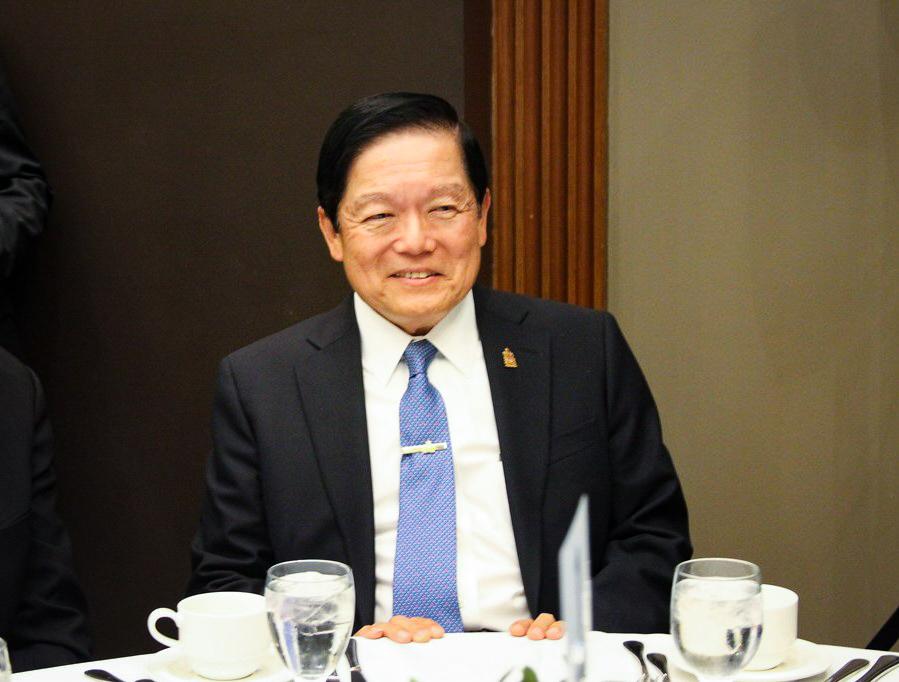Addressing an audience recently in Montreal, Sen. Victor Oh said he is planning to rent buses to transport up to 3,000 people to Ottawa for an upcoming demonstration against proposed legislation to create a foreign agent registry aimed at combatting foreign influence.
“We need to rent buses to [transport people] from Toronto. I plan to rent 50 buses. ... Each can accommodate around 55 to 60 people, so with 50 buses, that’s 3,000 people,” Oh told his audience in Chinese at an event held at the Montreal Chinese Community United Centre (MCCUC), according to a video posted June 13 on Weixin, the Chinese version of WeChat. The video’s caption said Oh spoke “yesterday,” indicating the event was held on June 12.





